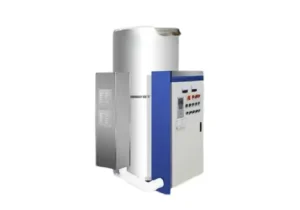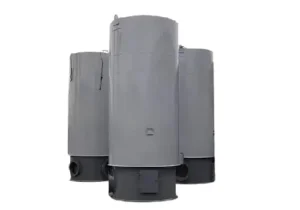New Boilers For You Lets On

New boilers play a key role in heating systems, keeping homes and businesses warm and cozy. As time goes by, boilers can break down or lose their efficiency, making it necessary to replace them. This guide will look at the main things to consider when deciding if you should replace your boiler and the steps you’ll need to take.
Getting to Know Your Boiler
Before you make a choice, you need to understand your current boiler. Think about these points:
- Age: Old boilers are less efficient and need fixing more often.
- Type: Each kind of boiler has its own level of efficiency and upkeep needs.
- Size: A too big or small boiler can affect how well it heats and how much energy it uses.
- Efficiency: Look at the boiler’s Energy Efficiency Rating (ER) to see how much energy it uses.
Signs It’s Time to Get a New One
Here are some clues that your boiler might need replacing:
- Repairs All the Time: If you’re always fixing your boiler, it might be cheaper to get a new one.
- Sky-High Energy Costs: A sudden jump in your energy bills could mean your boiler isn’t working well.
- Not Enough Heat: If your place isn’t warming up like it should, your boiler might be acting up.
- Weird Sounds: If you hear odd noises, like banging or gurgling, your boiler could be in trouble.
Boiler Types
When it’s time to get a new boiler, you’ll have several options to pick from. Here are some common choices:
- Combi Boilers: These boilers give you heating and hot water in one package.
- System Boilers: System boilers work best for bigger homes and need a separate hot water tank.
- Regular Boilers: You’ll often see these boilers in older houses. They need a separate hot water tank and a flue.
- Condensing Boilers: These boilers save more energy than old-school boilers. They catch and reuse heat from the gases that come out.
Things to Think About Before Getting a New Boiler
You should think about a few things before you swap out your boiler:
- Property Size and Layout: Your property’s size and layout will decide the right boiler size and type.
- Energy Efficiency: Think about the long-term energy savings a new efficient boiler can offer.
- Cost: Include the boiler’s upfront cost, installation fees, and any possible government incentives in your budget.
- Maintenance requirements: Each boiler type needs different levels of upkeep.
- Warranty and Guarantees: Look at the warranty and guarantee terms from various manufacturers.

The boiler replacement process
To replace a boiler, you follow these steps:
- Consultation: A heating engineer checks your property and suggests the right boiler for you.
- Removal: The team takes out your old boiler.
- Installation: They put in the new boiler as the maker says to.
- Testing: They make sure the boiler works.
- Commissioning: A heating expert sets up the boiler and shows you how to use and take care of it.
Government Incentives and Grants
Many places offer government help and money to replace old, inefficient boilers with ones that save more energy. Look into what’s available where you live.
Conclusion
Getting a new boiler costs a lot, but it can make your home or business more comfortable, save energy, and boost its worth. If you think about the things we talked about in this guide, you’ll be able to decide if you need a new boiler and pick the right one for you.

